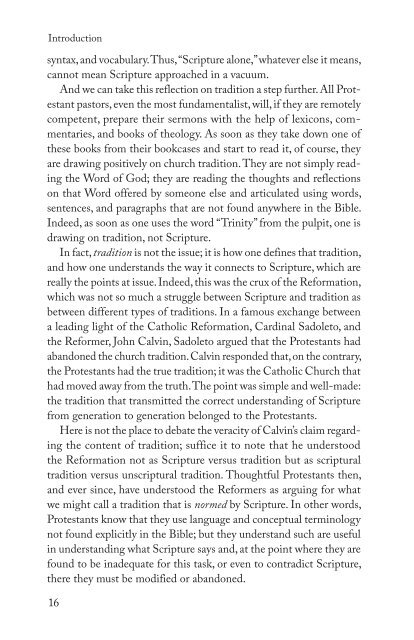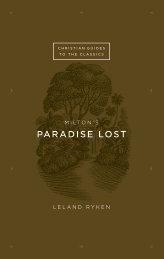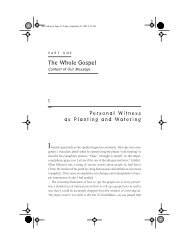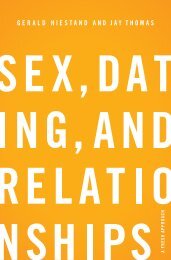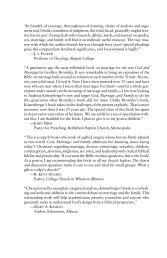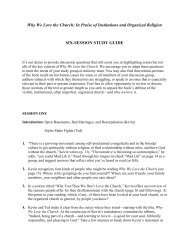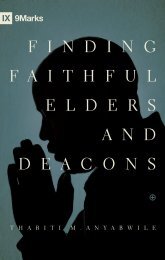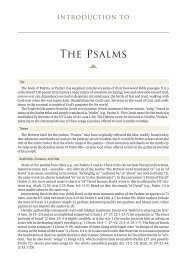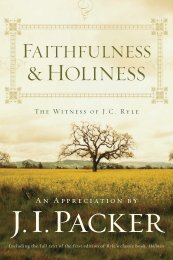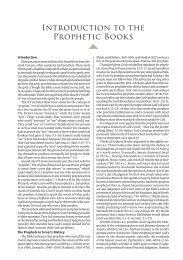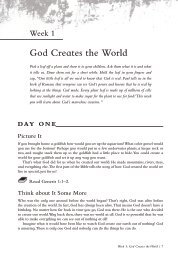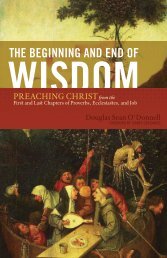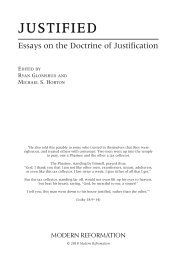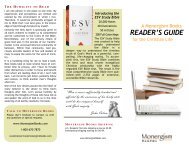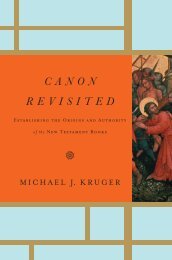The reedal - Monergism Books
The reedal - Monergism Books
The reedal - Monergism Books
You also want an ePaper? Increase the reach of your titles
YUMPU automatically turns print PDFs into web optimized ePapers that Google loves.
Introductionsyntax, and vocabulary. Thus, “Scripture alone,” whatever else it means,cannot mean Scripture approached in a vacuum.And we can take this reflection on tradition a step further. All Protestantpastors, even the most fundamentalist, will, if they are remotelycompetent, prepare their sermons with the help of lexicons, commentaries,and books of theology. As soon as they take down one ofthese books from their bookcases and start to read it, of course, theyare drawing positively on church tradition. <strong>The</strong>y are not simply readingthe Word of God; they are reading the thoughts and reflectionson that Word offered by someone else and articulated using words,sentences, and paragraphs that are not found anywhere in the Bible.Indeed, as soon as one uses the word “Trinity” from the pulpit, one isdrawing on tradition, not Scripture.In fact, tradition is not the issue; it is how one defines that tradition,and how one understands the way it connects to Scripture, which arereally the points at issue. Indeed, this was the crux of the Reformation,which was not so much a struggle between Scripture and tradition asbetween different types of traditions. In a famous exchange betweena leading light of the Catholic Reformation, Cardinal Sadoleto, andthe Reformer, John Calvin, Sadoleto argued that the Protestants hadabandoned the church tradition. Calvin responded that, on the contrary,the Protestants had the true tradition; it was the Catholic Church thathad moved away from the truth. <strong>The</strong> point was simple and well-made:the tradition that transmitted the correct understanding of Scripturefrom generation to generation belonged to the Protestants.Here is not the place to debate the veracity of Calvin’s claim regardingthe content of tradition; suffice it to note that he understoodthe Reformation not as Scripture versus tradition but as scripturaltradition versus unscriptural tradition. Thoughtful Protestants then,and ever since, have understood the Reformers as arguing for whatwe might call a tradition that is normed by Scripture. In other words,Protestants know that they use language and conceptual terminologynot found explicitly in the Bible; but they understand such are usefulin understanding what Scripture says and, at the point where they arefound to be inadequate for this task, or even to contradict Scripture,there they must be modified or abandoned.16


